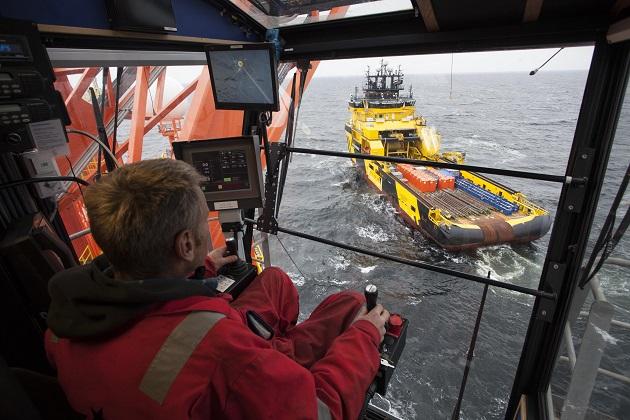
RUSSIA & EXXON: ARCTIC OIL

Russia, viewed by the Obama administration as hostile to U.S. interests, has discovered what may prove to be a vast pool of oil in one of the world's most remote places with the help of America's largest energy company.
Russia's state-run OAO Rosneft said a well drilled in the Kara Sea region of the Arctic Ocean with Exxon Mobil Corp. struck oil, showing the region has the potential to become one of the world's most important crude-producing areas.
The announcement was made by Igor Sechin, Rosneft's chief executive officer, who spent two days sailing on a Russian research ship to the drilling rig where the find was unveiled today. The well found about 1 billion barrels of oil and similar geology nearby means the surrounding area may hold more than the U.S. part of the Gulf or Mexico, he said.
"It exceeded our expectations," Sechin said in an interview. This discovery is of "exceptional significance in showing the presence of hydrocarbons in the Arctic."
The discovery sharpens the dispute between Russia and the U.S. over President Vladimir Putin's actions in Ukraine. The well was drilled before the Oct. 10 deadline Exxon was granted by the U.S. government under sanctions barring American companies from working in Russia's Arctic offshore. Rosneft and Exxon won't be able to do more drilling, putting the exploration and development of the area on hold despite the find announced today.
"We have encountered hydrocarbons but it is premature to speculate on any potential outcome," Richard Keil, an Exxon spokesman in Irving, Texas, said by telephone. "Our current focus is on completing the well and safely winding down operations consistent with our license with the U.S. government."
Putin's Ambition
The development of Arctic oil reserves, an undertaking that will cost hundreds of billions of dollars and take decades, is one of Putin's grandest ambitions. As Russia's existing fields in Siberia run dry, the country needs to develop new reserves as it vies with the U.S. to be the world's largest oil and gas producer.
Output from the Kara Sea field could begin within five to seven years, Sechin said, adding the field discovered today would be named "Victory."
The Kara Sea well -- the most expensive in Russian history -- targeted a subsea structure named Universitetskaya and its success has been seen as pivotal to that strategy. The start of drilling, which reached a depth of more than 2,000 meters (6,500 feet), was marked with a ceremony involving Putin and Sechin.
The importance of Arctic drilling was one reason that offshore oil exploration was included in the most recent round of U.S. sanctions. Exxon and Rosneft have a venture to explore millions of acres of the Arctic Ocean.
Oil Strategist
"Once the well is plugged, there will be a lot of work to do in interpreting the results and this is probably something that Rosneft can do," Julian Lee, an oil strategist at Bloomberg First Word in London, said before today's announcement. "Both parties are probably hoping that by the time they are ready to start the next well the sanctions will have been lifted."
The stakes are high for Exxon, whose $408 billion market valuation makes it the world's largest energy producer. Russia represents the second-biggest exploration prospect worldwide. The Irving, Texas-based company holds drilling rights across 11.4 million acres in Russia, only eclipsed by its 15.1 million U.S. acres.
Escalating Costs
Exxon Chairman and Chief Executive Officer Rex Tillerson is counting on Russian discoveries to reverse a trend of stalled exploration and escalating costs to pump crude and natural gas from the ground. Production from the company's wells fell in 2012 and 2013 and is expected to be flat this year.
More drilling and geological analysis will be needed before a reliable estimate can be tallied for the size of the oil resources in the Universitetskaya area and the Russian Arctic as a whole, said Frances Hudson, a global thematic strategist who helps manage $305 billion at Standard Life Investments Ltd. in Edinburgh.
Sanctions forbidding U.S. and European cooperation with Russian entities mean that country's nascent Arctic exploration will be stillborn because Rosneft and its state-controlled sister companies don't know how to drill in cold offshore conditions alone, she said.
"Extrapolating from a small data sample is perhaps not going to give you the best information," Hudson said in a telephone interview. "And because of sanctions, it looks like there's going to be less exploration rather than more."
Iceberg Hazard
In addition, the expense and difficulty of operating in such a remote part of the world, where hazards include icebergs and sub-zero temperatures, mean that the developing discoveries may not be economic at today's oil prices.
The U.S. portion of the Gulf produces more than a million barrels a day and holds reserves of almost 6 billion barrels, according to data from the Department of Energy.
bloomberg.com





